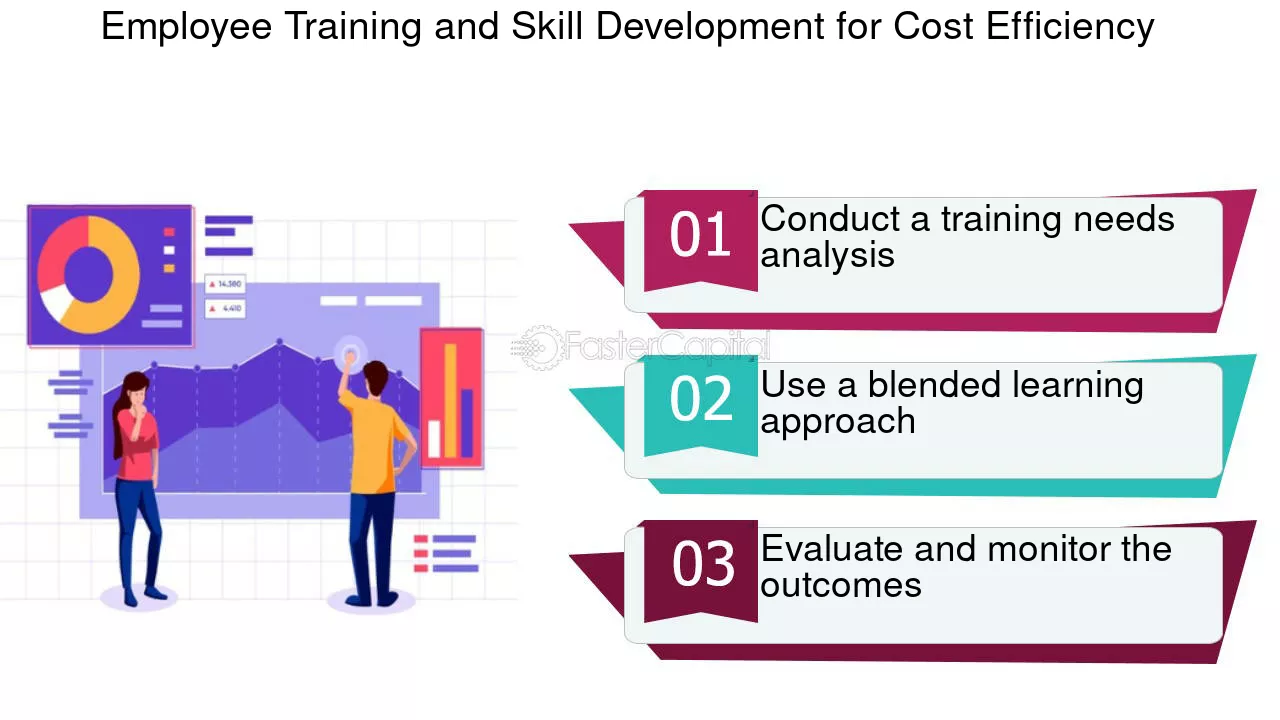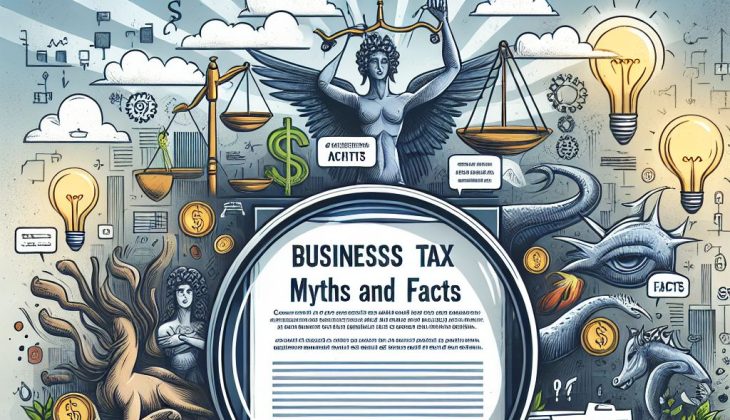Let’s cut to the chase. Understanding business tax credits can be a bit of a minefield, but it’s essential for getting the most out of your financial rewards. There’s a lot of misinformation out there, and this can result in expensive errors. In this article, we’re going to dispel some popular myths and equip you with the knowledge you need to make educated choices.
Key Takeaways
- Home office deductions do not automatically trigger IRS audits.
- Expenses for developing skills can be deductible under certain conditions.
- LLC structures can offer tax benefits, not just burdens.
- Startups are eligible for R&D tax credits if they meet specific criteria.
- Small businesses can qualify for energy efficiency credits.
Introduction to Business Tax Credit Myths
Business tax credits can significantly impact your profit margin, but misinformation can lead you down the wrong path. Many business owners avoid claiming credits due to fear of audits or misunderstandings about eligibility. Let’s debunk these myths so you can fully leverage what’s available to you.

Why Misconceptions Can Be Expensive
Buying into misconceptions about tax credits could result in leaving money on the table. For instance, if you believe your business is too small for R&D credits, you could be overlooking significant savings. Above all, knowing the facts allows you to maximize your tax planning and avoid fines.
Breaking Down Popular Tax Credit Misbeliefs
Before we start debunking each myth, here are some widespread misunderstandings:
- Claiming home office deductions will lead to an audit.
- Costs for skill development are not deductible.
- Forming an LLC will increase your tax burden.
- R&D credits are not available for startups.
- Only large businesses can claim energy efficiency credits.
Myth: Claiming Home Office Deductions Will Lead to an Audit
Many business owners are hesitant to claim home office deductions because they are afraid it will trigger an IRS audit. This myth is common, but it’s not entirely true. Let’s debunk this myth by exploring home-based business tax deductions and how they can be claimed responsibly.
Deciphering Legitimate Deductions
You can indeed claim home office deductions if you meet specific requirements. The area must be used consistently and solely for business. This translates to a separate room or space that isn’t used for personal tasks. For more insights, check out this article on busting small business tax myths.
Here’s what you need to think about:
- Make sure that your home office is your main place of business.
- Track all of the business activities you do in your home office.
- Measure the size of your home office and compare it to the size of your entire home.
The Truth About IRS Audits
Yes, home office deductions can increase your chances of being audited. But the risk isn’t as high as you might think. The IRS has guidelines for this, and if you follow them, you shouldn’t worry about an audit. Plus, if you have all of your documentation, an audit will be much easier to deal with. For more information on potential savings, check out this home-based business tax deductions guide.
Advice for Secure Deductions
To securely claim home office deductions, follow this advice:
- Take advantage of the IRS Simplified Option for calculating deductions if it applies to you.
- Keep detailed records of your expenses and how you use them for your business.
- Work with a tax professional to make sure you’re following all the rules.
Myth: You Can’t Deduct Skill Development Expenses
Many people believe that you can’t deduct the costs of skill development and training. But that’s not always the case. There are specific situations where you can deduct these expenses. For more information, you might consider exploring home-based business tax deductions that could apply to your situation.

Qualifying Business Education Expenses
“If the education maintains or improves skills needed in your present work, it can be deductible.” – IRS Guidelines
For example, if you’re a graphic designer and you take a course on the latest design software, this could be a deductible expense. But if the education is for a new career, it may not qualify.
Here are some examples of deductible expenses for skills development, which can be an essential part of maximizing your employee retention tax credit benefits for businesses:
- Workshops and seminars that are related to your current profession.
- Online courses that are designed to enhance your existing skills.
- Professional certifications that enhance your current role.
Maximizing Skill Development Tax Benefits
To make the most of these deductions, you need to keep meticulous records of all related expenses. You need to save your receipts and document how each expense directly relates to your business activities. This will ensure that you can justify the deduction if you are questioned by the IRS.
Furthermore, keep an eye out for changes in tax laws that might impact the eligibility of educational expenses. Regular check-ins with a tax advisor can help you stay within the law and get the most out of your deductions.
Myth: Forming an LLC Increases Your Taxes
Many business owners are under the impression that if they form a Limited Liability Company (LLC), they will end up paying more in taxes. This misconception often discourages business owners from setting up an LLC. However, the truth is that forming an LLC can actually provide tax advantages.
LLCs provide a lot of leeway when it comes to taxation. By default, an LLC is seen as a pass-through entity, which means the business doesn’t get taxed. Instead, profits and losses are reported on the owners’ personal tax returns. This can lead to considerable tax savings, especially for small business owners.
LLC Tax Advantages
A significant advantage of an LLC is the ability to bypass the double taxation that corporations frequently face. In a corporation, the company is taxed on its income, and shareholders are also taxed on dividends. This double whammy can be avoided with an LLC.
Additionally, LLCs have the option to choose to be taxed as an S corporation, which could provide additional tax benefits. This choice allows owners to potentially lower self-employment taxes by paying themselves a reasonable salary and taking extra profits as distributions.
Picking the Best Structure for Your Business
When you’re determining the structure of your business, think about what you want to achieve with your business, how many owners there will be, and how much liability protection you require. An LLC offers a good mix of liability protection and tax flexibility, which is why it’s a favorite among many small businesses.
Myth: R&D Credits Aren’t for Startups
It’s a common misconception among startup owners that their businesses are too small to qualify for Research and Development (R&D) tax credits. This misunderstanding can stop startups from reaping the financial benefits they could be entitled to. The reality is, even small startups can qualify for these credits if they meet certain requirements.
The purpose of R&D tax credits is to incentivize businesses to invest in innovation. If your startup is developing new products, processes, or software, you may be eligible for these credits, no matter the size of your company.
Who can apply for R&D tax credits?
Here are the requirements you need to meet to apply for R&D tax credits. For businesses looking to optimize their tax benefits, exploring top tax advisor evaluations can be beneficial.
- They must be intended to develop or improve a product or process.
- There must be an element of technological uncertainty involved.
- The activities must involve a process of experimentation.
- They must rely on hard sciences, such as engineering or computer science.
How Startups Can Leverage R&D Credits
Startups can use R&D credits to offset payroll taxes, which is particularly beneficial for companies that are not yet profitable. This means you can receive a cash benefit even if your startup is still in the early stages and not generating taxable income.
How to Claim R&D Credits
If you want to claim R&D credits, here’s what you need to do:
- Recognize which research activities and expenses qualify.
- Keep detailed records and document the research process.
- Use IRS Form 6765 to calculate the credit.
- Make sure to consult with a tax professional to ensure compliance and maximize your credit.
Startups can effectively use R&D credits to support their growth and innovation efforts by following these steps.
Myth: Energy Efficiency Credits Are Only for Big Businesses
Many people mistakenly think that only large corporations can benefit from energy efficiency tax credits. This misconception can deter small businesses from seeking these credits and thus lose out on possible savings. Contrary to this belief, small businesses can also take advantage of energy efficiency incentives.

Uncovering Energy Credit Options
Businesses that invest in renewable energy systems or make energy-saving improvements can take advantage of energy efficiency credits. This could involve installing solar panels, upgrading HVAC systems, or enhancing insulation. For more information on evaluating potential tax credit opportunities, consider reviewing this guide on top tax advisor evaluations.
How to Easily Qualify for Energy Credits
If you want to qualify for energy efficiency credits, you should consider doing the following:
- Perform an energy audit to find where you can make improvements.
- Buy energy-efficient equipment and technologies.
- Maintain records of all energy-related costs and upgrades.
- Speak with an energy consultant to find out what incentives are available.
Small businesses can not only lower their environmental footprint by doing these things, but they can also save money through tax credits.
Final Words on Maximizing Tax Credits
Knowing the facts behind common tax credit misconceptions can enable business owners to make knowledgeable decisions and maximize their tax plans. By dispelling these misconceptions, you can utilize available credits, lower your tax liability, and aid your business’s expansion. For more insights, explore how to maximize employee retention tax credit benefits for your business.
Keep abreast of changes in tax laws and make sure to consult with a tax professional to ensure you are in compliance and maximizing your benefits. Remember, the foundation of successful tax planning is knowledge and preparation.
Essential Insights for Entrepreneurs
Knowing how to use business tax credits to your advantage can greatly lower your taxes and improve your business’s financial well-being.
Many businesses don’t take full advantage of tax credits because of common misconceptions, such as the idea that claiming a home office deduction will trigger an audit or that startups aren’t eligible for R&D credits.
Keep meticulous records, seek advice from tax experts, and stay up-to-date with tax law amendments to make the most of the credits available to you.
Whether a business is big or small, it can reap the rewards of energy efficiency credits by putting money into renewable energy systems and making improvements that save energy.
Many business owners find LLCs beneficial because they provide tax flexibility and help prevent double taxation.
Additional Help and Expert Guidance
If you need more help understanding business tax credits, you might want to talk to a certified tax expert who can give you advice tailored to your business’s specific needs.
There is a wealth of information available on the internet, from IRS publications to tax planning websites, about the eligibility requirements and how to claim various tax credits.
Common Questions
Here are some questions business owners often ask about tax credits and how to make the most of them.
What types of business expenses usually qualify for tax credits?
Typically, business expenses that qualify for tax credits include costs associated with research and development, improving energy efficiency, and employee training. Some equipment purchases and technology upgrades may also be eligible.
What can I do to make sure my deductions are IRS compliant?
Keeping accurate, detailed records of all expenses you plan to deduct is the best way to ensure compliance with IRS rules. It’s also a good idea to have a tax professional review your deductions to make sure they meet IRS requirements. Using tax software can also help ensure accuracy and compliance.
Are all small businesses eligible for R&D tax credits?
Small businesses don’t automatically qualify for R&D tax credits. Whether or not you’re eligible depends on the type of research activities you’re conducting and how they match up with IRS guidelines. Be sure to keep detailed records of your research activities to back up your claim. For more insights, you might consider evaluating tax credit opportunities with a top tax advisor.
What are the benefits of energy efficiency credits for my small business?
Energy efficiency credits can help you decrease your tax liability by rewarding you for investments in energy-saving technologies and practices. When you upgrade to energy-efficient systems, you can reduce your operational costs and contribute to a more sustainable environment.
These credits can also boost your company’s image as a responsible and progressive business.
What’s the optimal strategy for startups to approach tax credits?
For startups, the optimal strategy for approaching tax credits is to identify all possible credits early on and include them in your financial planning. Maintain meticulous records of activities and expenses that qualify, and collaborate closely with a tax advisor to maximize your credits.
Do I need to hire a tax expert to claim credits?
It’s not required, but it’s a good idea to hire a tax expert when you’re claiming tax credits. They can give you expert advice, make sure you’re following all the tax laws, and help you get the most benefits.
- Tax experts can help you find credits that you may have missed.
- They provide advice on paperwork and filing requirements.
- They assist in understanding complicated tax laws and updates.
In the end, a tax expert can save you time and avoid expensive mistakes. For a detailed guide on how to prepare for a tax audit, check out our business tax audit preparation checklist.
Is it possible to claim tax credits I missed in the past?
Yes, in some instances, you can claim tax credits retroactively by amending your tax returns for past years. The IRS generally allows amendments within three years from the original filing date. To explore this option and ensure you follow the correct procedures, consult with a tax advisor.
If you think you missed out on eligible credits in past filings, it’s worth looking into because claiming missed credits retroactively can lead to significant refunds.
Don’t forget, being knowledgeable and active about tax credits can greatly benefit your business’s financial well-being. Don’t let myths and misconceptions stop you from fully utilising the credits that are available to you.

